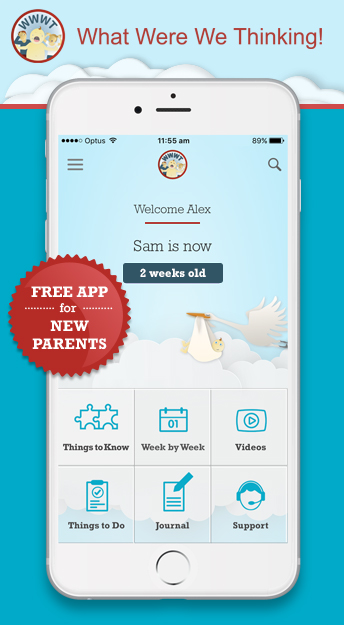The language of leave matters
By Dr Sarah Cotton and Dr Amy Beacom

Building a new parental leave culture one word at a time
Many of us used to wonder why our English teachers were so pedantic and picky about the language we used as students. “Why does it matter?” we would moan when we got back a paper full of red ink.
As perinatal workplace consultants, we have a newfound appreciation for our old English teachers’ critiques.
Our work, which specialises in the emerging field of parental leave coaching, reminds us daily about the power of language and the subtle cultural messages it can send, intentionally or not.
We believe that while support for working parents has come a long way, there are three things language needs to do to help us build a better parental leave culture. It must be inclusive, opportunity finding, and bridge-building.
Inclusive
Everyone needs to be involved in the discussion around parental leave. This means using language that includes all genders, all parents and all types of families. We’re now a long way from the traditional ‘nuclear’ families of the 1950s, so our language needs to reflect the many different types of families we see today, which range from single parent-led, blended, LGBTQIA, multi-generational, and others.
Opportunity finding
While it is important to acknowledge the challenges of leave, it is also important to recognise the opportunities that this major transition presents.
In our work, we argue that parental leave is a company’s most overlooked leadership development and human growth opportunity. Policies and practices that seek to harness this potential will go far towards building a culture of parental leave that moves us from thinking of this as a ‘time out’ of one’s career, to a vital and powerful ‘time-in’ – in one’s career and life.
Not only do we believe parental leave needs this type of rebranding at a global level, we also think that the words used to describe it do as well. Take, for example, the Australian habit of bidding ‘farewell’ or the United States’ practice of throwing a ‘going-away party’. Think about the message of ‘final departure’ that this sends to an employee going on leave.
In helping to build a new language of leave, we have been using the term ‘leave launch’ to highlight the opportunities the new parent is ‘launching’ into – opportunities that, when supported well, will allow them to grow and develop new skills to bring back with them when they return – their ‘leave landing’.
Bridge-building
The language we use can help to bridge the gap between employer and employee during this transition time.
Employees often feel that the joys and difficulties of family life are something they need to hide at work. Employers, on the other hand, are often afraid they may say the wrong thing to an expectant or new parent.
The bridges we build with language can support the reality that we are all part of a family of one type or another, and these bridges can help set the foundation for the necessary conversations at work and at home. A solid communication plan can also help to address the many assumptions of leave – ultimately shifting the conversation away from leave support being something that’s ‘nice to have’ to it being a necessity.
As companies begin to embrace a new culture around parental leave, let’s remember that being pedantic about the language we use does indeed matter.
Dr Sarah Cotton, Transitioning Well (TW) and Dr Amy Beacom, Center for Parental Leave Leadership (CPLL). Dr Sarah Cotton is Co-Director of Transitioning Well, Organisational Psychologist and certified RETAIN Parental Leave Coach. Dr Amy Beacom is Founder and CEO of the Center for Parental Leave Leadership, Executive Leadership Coach and author of RETAIN Parental Leave Coaching.
Posted in: Health Professionals Late pregnancy Your needs








